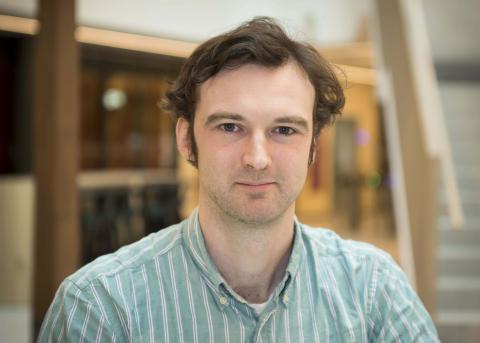Biography
Dr Nathan Skene’s research group is working to identify the cell types and intracellular processes affected by the genetic loci which underlie neurodegenerative diseases. He began his career completing an undergraduate degree in Artificial Intelligence and Cybernetics from the University of Reading in 2008, followed by an MPhil in Computational Biology at the University of Cambridge in 2009. He went on to pursue a PhD in Molecular Biology at the Wellcome Trust Sanger Institute with Prof Seth Grant, before moving to the Karolinska Institutet in Sweden as a postdoctoral researcher with Jens Hjerling-Leffler, as part of the Functional Neuromics project. Having developed large scale single cell RNA-seq atlases of brain cell types, Dr Skene used these datasets to gain genetic insight into complex genetic diseases. He showed that at least two distinct neuronal types play a role in the aetiology of schizophrenia and that Alzheimer’s associated genetic variants are primarily active in macrophages. In 2020, he was awarded a prestigious Future Leader’s Fellowship from UK Research and Innovation. As a Group Leader at UK DRI, Dr Skene will build on his expertise, exploring some of the fundamental questions that remain in the field of neurodegeneration, using data-driven and genetics-oriented approaches.
News
Key publications
Skene Lab
Explore the work of the Skene Lab, focusing of answering questions about neurodegenerative disease: where? when? how?



